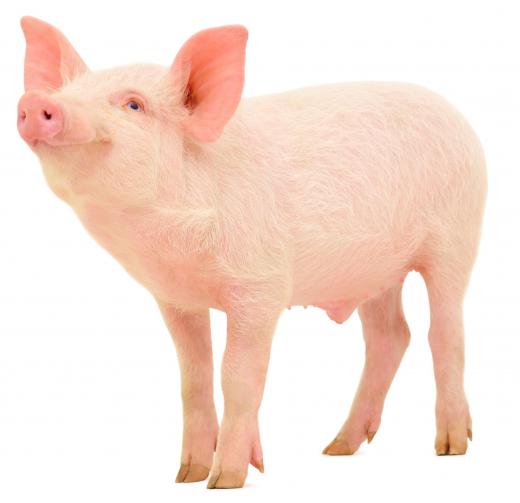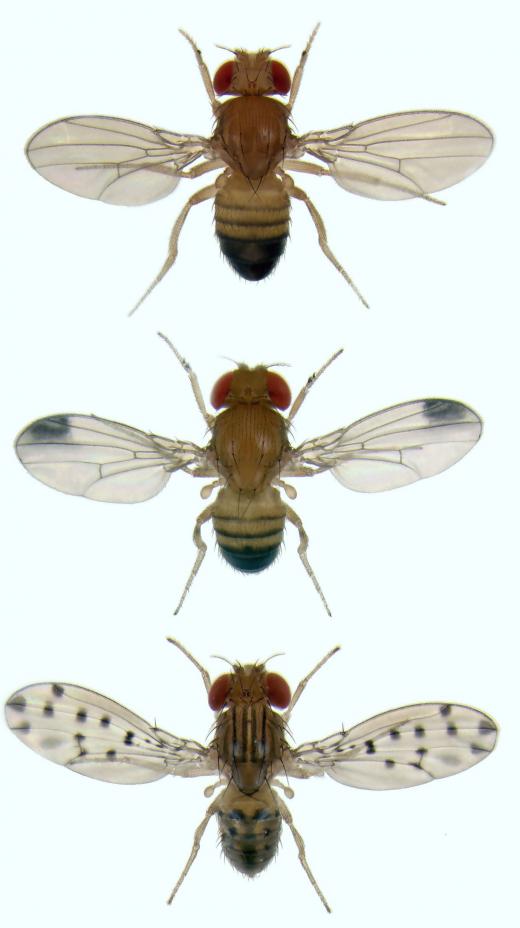What is the Gene Pool?
 Mary McMahon
Mary McMahon
The gene pool is a reflection of the total number of alleles shared among the breeding population of a species. An allele is one form of a gene: for example, the gene which codes for eye color in humans include alleles for blue, green, brown, and hazel eyes, among others. People can refer to the gene pool for a specific gene, such as hair color, or for a species as a whole.
As a general rule, the bigger the gene pool is, the better things are for a species, because it reflects diversity. Diversity tends to encourage hardiness. When a population is not very diverse, negative alleles can become amplified, which can be dangerous for the population in the long term. For example, in a species of animal in which many animals have a allele which weakens the bones in the legs, future generations will be more likely to have weak legs, while in a diverse population where only a few individuals have this allele, fewer numbers of animals will have this problem in the future because there are fewer individuals to pass it on.

A number of things can influence the size of a gene pool. Overall number of organisms is important, as are the relationships between organisms. The more total representatives of a species, the more possibility for diversity, and the fewer direct genetic relationships between animals, the less of a potential for negative alleles to become amplified as a result of inbreeding. Spontaneous mutations in a population can also increase the size of a gene pool, with some species being famous for their high mutation rate.

Gene pools are of interest for a number of reasons. Among livestock farmers and animal breeders, a diverse set of genes is desired to create a healthy population of breeding animals. This is an especially large concern for breeders who work with purebred animals, as purebreds tend to develop issues associated with inbreeding due to restrictions on the animals allowed to breed. Conservationists are also concerned with gene selection, as endangered species can reach a point of critical mass beyond which they will not survive as their populations dwindle and the gene pool becomes less diverse.

Researchers interested in the growth and shrinkage of gene pools often work with fruit flies, because they breed quickly and they have long been used in the study of genetics. Working with carefully controlled populations of fruit flies, geneticists and other researchers can examine the impact of a variety of influences on the genetic health of a species.
AS FEATURED ON:
AS FEATURED ON:














Discussion Comments
Why is the genetic pool of a mosquito very strong in comparison to a butterfly when both are arthropods?
Allele frequency is necessary for fostering members of a species with specific roles and skills. The greater the diversity of the genes, the more effective a group will be in survival and dominance of a given area. A wolf pack with low allele frequency is likely to be overcome by one with a higher allele frequency.
The greater the diversity, the greater the species' hardiness and skill. To look down on any aspect of a certain group in the human gene pool is a sad suicide of a species. It is like looking at your arm or leg and determining that since it does not seem to be as "good" as some other part of the body, it must be cut off.
The human gene pool seems to be a somewhat controversial topic due to the old travesty of eugenics. When someone jokingly tells you they think you should remove yourself from the gene pool, it harkens back to an old and terrible belief of social darwinism which states that certain individuals are genetically superior to others, and have more of a right to live. This was the fatal and dangerous belief of the Third Reich.
Post your comments